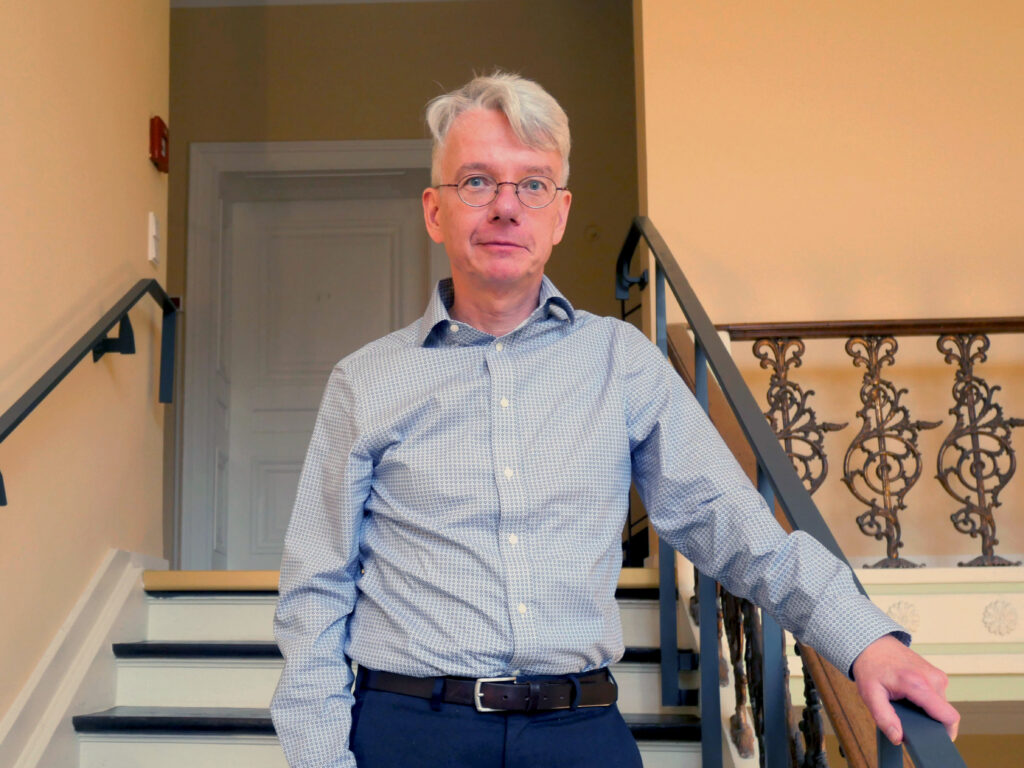c:o/re Senior Fellow 10/24 – 03/25

Carsten Reinhardt is professor for historical studies of science at the University of Bielefeld. From 2013 to 2016, he was President and CEO of the Science History Institute in Philadelphia, USA. Between 2014 and 2023, he has co-directed the research program on the history of the Max Planck Society. Reinhardt’s overall research fields are the history of chemistry, industrial research, scientific instrumentation and expert knowledge. For his co-authored book Residues. Thinking Through Chemical Environments, Rutgers UP 2022, he received the 2023 Robert K. Merton Award of the American Sociology Association (Science, Knowledge, and Technology Section). In 2024, he has received the Morris Award of the Society for the History of Chemistry, recognizing scholarly achievement in the History of Modern Chemistry or the History of the Chemical Industry.
Residual Uncertainty: A Study on the Deep-Time Effects of Chemical Industrialization
Chemical materials are the building blocks of any society. Since the late 1800s, their refinement and synthesis has taken priority, while the chemical industry became a globally pervasive force. In this course, the impact of chemicals on health and the environment has created a whole range of uncertainties, as the large-scale industrial and environmental transformations are highly complex, long-term, hidden, sometimes secretive, and far from being completely understood.
I call the material releases of the chemical industry into society and the environment residues, and I will scrutinize their effects under the thesis of residues being creators of uncertainty in modern society. Residues build a material category that is epistemologically, technically, and legally made “invisible” after the main products of industrial technology have found their ways to markets and consumers. They are both markers and agents of past political, economic, and cultural choices, but they remain hidden. As such, residues are formed by a fundamental disconnect between societal discourse and material reality, contributing to a form of uncertainty that becomes an unavoidable and unextinguishable material and social factor: residual uncertainty.
During my term at c:o/re, I wish to contribute to an expanded STS program broadening existing approaches on risk and uncertainty through differentiating between kinds of residual uncertainty, characterized by its source: historical, social, and epistemic uncertainty. I regard studying the long-term effects of residues— their “historicity”, being the result of both contingent action in the past and an equally uncertain long-term journey through time and space—as the key to better understand and perhaps also more justly regulate the chemical environment of our time.
Publications (selection)
Reinhardt, Carsten, and Wessel de Cock. 2024. Narratives of contingency and practices of comparing in the emergence of German molecular genetics (1958–1968). In: Studies in History and Philosophy of Science, 107: 118–127. https://doi.org/10.1016/j.shpsa.2024.06.010
Reinhardt, Carsten, Boudia, Soroya, Creager, Angela N.H., Frickel, Scott, Henry, Emmanuel, Jas, Nathalie, and Jody A. Roberts. 2022. Residues. Thinking Through Chemical Environments. New Brunswick, NJ: Rutgers University Press.
Reinhardt, Carsten. 2021. “Culture and Science. Materials and Methods in Society”. In: A Cultural History of Chemistry in the Modern Age, 1914-2019, edited by Peter J.T. Morris. London: Bloomsbury, pp. 99-121
Reinhardt, Carsten. 2018. What’s in a Name? Chemistry as a Nonclassical Approach to the World. Focus Section Introduction. In: Isis 109: 559-564
Reinhardt, Carsten, Boudia, Soroya, Creager, Angela N.H., Frickel, Scott, Henry, Emmanuel, Jas, Nathalie, and Jody A. Roberts. 2018. Residues. Rethinking Chemical Environments. In: Engaging Science and Technology 4: 165-178. DOI:10.17351/ests2018.245

